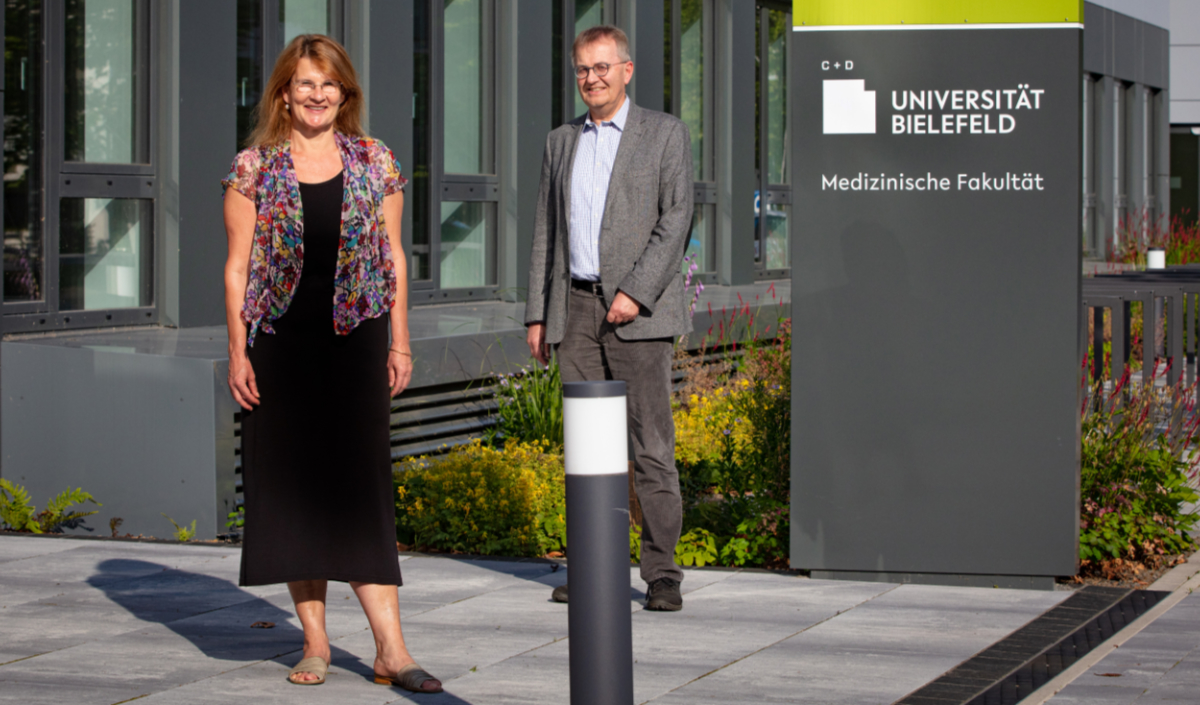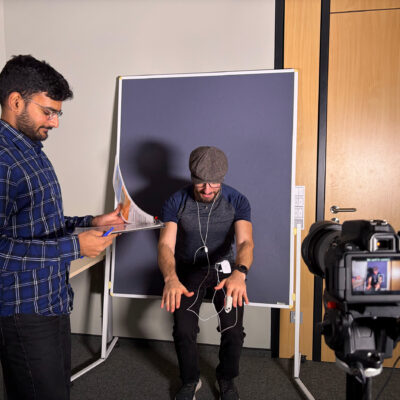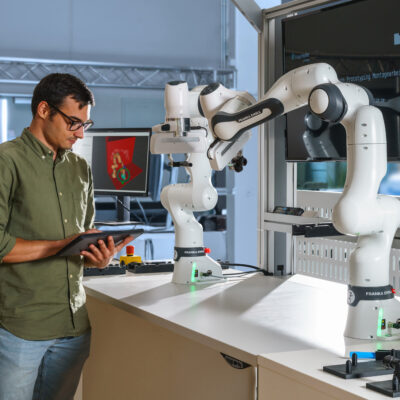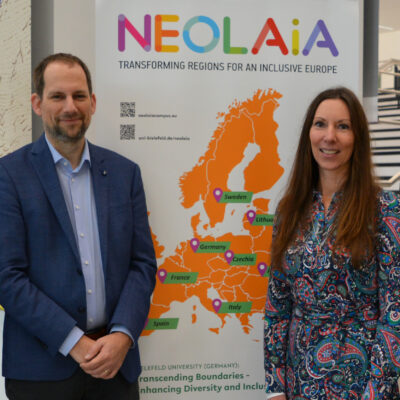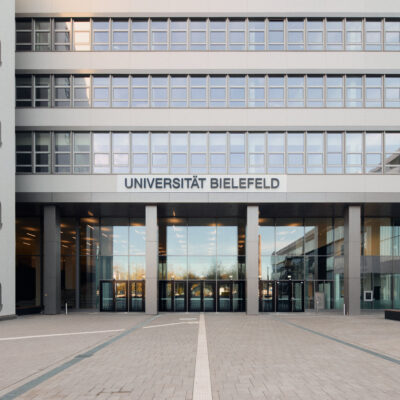Applications to Bielefeld University’s Medical Research Start-up Fund (AMF [Anschubfonds Medizinische Forschung]) had to be submitted by April. The university’s rectorate has now reviewed the recommendations of the selection committee and made its decision. In the first funding round, the AMF will support six collaborative projects. The new projects involve technical applications for rehabilitation, the microbiome in the treatment of chronic rhinosinusitis, eye-tracking in the diagnosis of strokes, artificial intelligence in the aftercare of hear-ing prostheses, sleep promotion as a preventive measure as well as the improved care of patients with chronic pain. The AMF is designed to contribute to the further development of the new faculty’s medical research profile. The fund promotes collaboration between Bielefeld University scientists and physicians at OWL University Hospital (UK OWL) as well as physicians with their own practice in OWL.
‘We would like to thank all applicants. The number of good project proposals on various exciting and promising medical research topics did not make the decision an easy one,’ said Professor Dr Martin Egelhaaf, Bielefeld University’s vice-rector for research and research transfer. ‘We are very confident that the chosen projects will help to develop a competitive and sustainable profile and we congratulate those involved in the projects that are being funded.’
The following six projects with the extensive involvement of UK OWL hospitals and various faculties of Bielefeld University will be funded in the first round of the AMF:
- ‘Adaptive virtual reality-based rehabilitation for upper extremity injuries—a feasibility study’ [Adaptiv virtuelle Rehabilitation bei Verletzungen der oberen Extremität – Eine Machbarkeitsstudie]
- ‘Chronic pain in patients with and without inflammatory rheumatic disease in primary and secondary care: cross-sectional assessment, review of a new referral strategy and analysis of context factors’ [Chronische Schmerzen bei Patient*innen mit und ohne entzündlich rheumatische Erkrankung in der Primär- und Sekundärversorgung: transsektorale Bestandsaufnahme, Überprüfung einer neuen Überweisungsstrategie und Analyse von Kontextfaktoren]
- ‘Detection of shifts in microbiome composition in chronic rhinosinusitis by an optimised analytical workflow’
- ‘An AI-based system for optimised aftercare of cochlear implant patients’ [Ein KI-basiertes System zur optimierten Nachsorge von Cochlea Implantat‐Patient*innen]
- ‘Cognitive disorders after stroke and with dementia: new methods of diagnosis using high-resolution eye-tracking’ [Kognitive Störungen nach Schlaganfall und bei Demenz: Neue Wege der Diagnostik mittels High-Resolution Eye-Tracking]
- ‘Vulnerable elderly, vulnerable brains: modifying pathways from illness to impairment—preoperative sleep promotion as prehabilitation to prevent postoperative delirium in older people’ [Vulnerable elderly, vulnerable brains: Modifying pathways from illness to impairment – Präoperative Schlafförderung als Prähabilitation zur Verhinderung des postoperativen Delirs bei älteren Menschen]
In addition to the vice-rector for research and research transfer, the selection committee appointed by the rectorate also included the founding dean of the OWL Medical School, three members of Bielefeld University’s Medical Advisory Board and the OWL Medical School’s equal opportunities officer.
‘Above all, the fund offers university researchers and researching physicians in the region’s hospi-tals and practices the opportunity to prepare joint applications for third-party funding,’ says Professor Dr Claudia Hornberg, the founding dean of the OWL Medical School. This can encourage new collaborations and further develop and refine the research profile ‘Medicine for people with disabilities and chronic diseases’.
Research ideas and projects in the planned medical research profile ‘Medicine for people with disabilities and chronic diseases’ with the research foci ‘Brain–impairment–participation’ and ‘Intelligent systems–assistance–interprofessional networking’ as well as the perspective fields ‘Microbial diversity in the human habitat’ and ‘Data science for medical care’ will be supported.
Another goal is to strengthen inter-institutional research within OWL University Hospital as well as cross-sectional research.
The AMF was established for a limited period of three years and with a total funding volume of EUR 1.5 million. A second AMF funding round is planned for autumn 2020. For the first round, 24 projects were submitted.
OWL Medical School in Bielefeld
In the winter semester 2021/22, Bielefeld University will begin a model study programme in human medicine, initially with 60 students. In addition to continuous subject-related preparation for the diverse requirements of medical work, the perspective of outpatient medicine is given special consideration in the new model study programme. Currently, numerous appointment procedures for the new professorships to be filled are underway, the curriculum is being designed, teaching and research practice networks are being established, and qualification programmes for young scientists are being prepared. OWL Medical School represents a strategic expansion of Bielefeld University’s range of degree programmes and its research portfolio.
Further information is available online at:
Website of the medical research start-up fund (in German)
